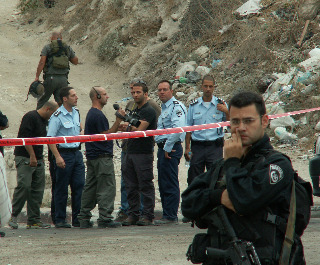(Special to APN from Daniel Seidemann and Lara Friedman)
We wrote earlier today about the crisis unfolding in Silwan. The latest Jerusalem news - that the Israeli police have withdrawn from the Temple Mount/Haram al Sharif and the barricaded worshipers have left the site - is creating the impression that this crisis is now behind us.
Such a conclusion would be dangerously premature. There are compelling reasons to warn that this crisis may not yet be over:
We wrote earlier today about the crisis unfolding in Silwan. The latest Jerusalem news - that the Israeli police have withdrawn from the Temple Mount/Haram al Sharif and the barricaded worshipers have left the site - is creating the impression that this crisis is now behind us.
Such a conclusion would be dangerously premature. There are compelling reasons to warn that this crisis may not yet be over:
Continue reading Silwan Crisis - Not Over Yet.
